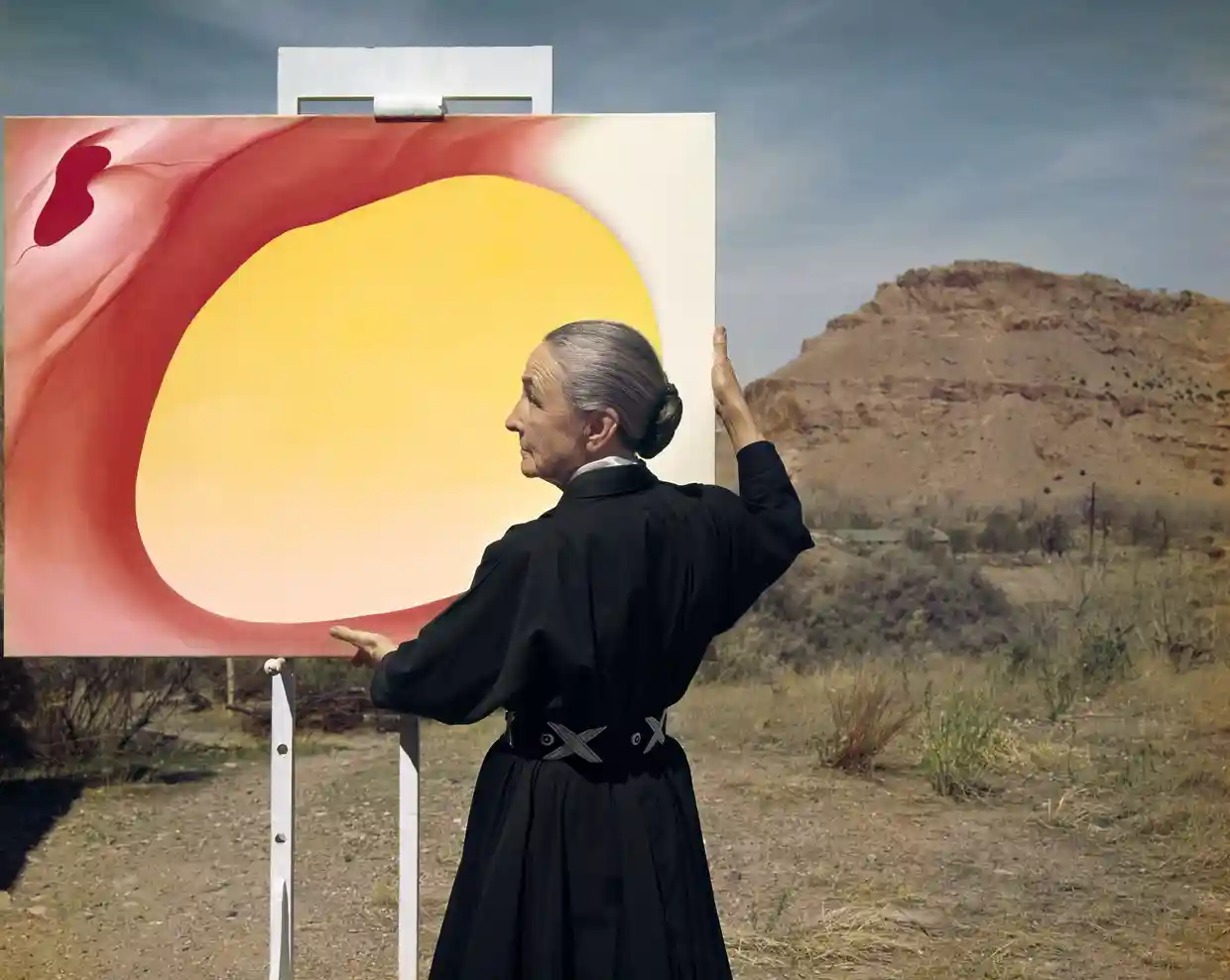‘Mind-blowing’: Why do men’s paintings cost 10 times more than women’s?

In Leonardo’s long shadow … Georgia O’Keeffe in New Mexico, 1960. Photograph: Tony Vaccaro/Getty Images
For every £1 fetched by a male artist’s work, one by a woman gets a mere 10p – and its value plummets further if she signs it. The creator of Recalculating Art, a shocking new radio exposé, reveals her findings.
Are men 10 times better at painting than women? You might think so if you listened to the German artist Georg Baselitz, who famously told the Guardian in 2015 that “women don’t paint very well. It’s a fact. The market doesn’t lie.”
The market may not be deliberately deceiving us but it certainly gives the impression that male artists are much better than female ones. The most expensive painting ever sold – Salvator Mundi by Leonardo da Vinci – fetched $450m while the world record for a female artist, Georgia O’Keeffe, is just $44.4m, a tenth as much.
“Women were dropped by galleries on becoming pregnant. Buying their work was seen as risky as they wouldn’t be as committed to their careers”
Of course, this is an unfair comparison. For most of human history, women were not allowed to practise art in the same way as men so there are inevitably fewer old mistresses than old masters. But even among living artists, Jeff Koons holds the record, at $91m, while the female record held by Jenny Savilleis just $12.5m.
 Most expensive ever … Salvator Mundi fetched $450m. Photograph: © 2021 Elk Film Aps
Most expensive ever … Salvator Mundi fetched $450m. Photograph: © 2021 Elk Film Aps
And lower down the chain, a 10:1 disparity still holds. Helen Gorrill, the author of Women Can’t Paint, has studied the prices of 5,000 paintings sold all over the world and found that for every £1 a male artist earns for his work, a woman earns a mere 10p. “It’s the most shocking gender value gap that I’ve come across in any industry at all,” she told me for a BBC Radio 4 documentary, Recalculating Art.
It really is shocking. For some time, women have made up 70% of students in art college, selected on merit, and the art world prides itself on its liberal, progressive values. Yet it presides over the biggest pay gap I can think of.
So female artists are really up against it. The good news is that the world is slowly starting to change. Museums are trying to rebalance their collections. A few are even selling art by men in order to buy more art by women. Auction houses are now pushing female artists, and the Venice Biennale was hugely weighted towards women this year.
Collectors are noticing too. Even though prices for work by female artists are starting from a far lower base, they are currently rising 29% faster than for art by men. For canny investors who want a bargain and a higher return, it’s a no-brainer.
What’s more, a lot of this art is great. As Bellatrix Hubert of the David Zwirner gallery in New York, says: “If I’m looking at the artists we’re most interested in right now, it is predominantly women that are making the best art. Or the art that I think is more interesting.”
Women can’t paint? Rubbish. Even the market is telling us so.
To find out more about this original Guardian story, listen to Recalculating Art on BBC Radio 4 at 11.30am on 11 August.





